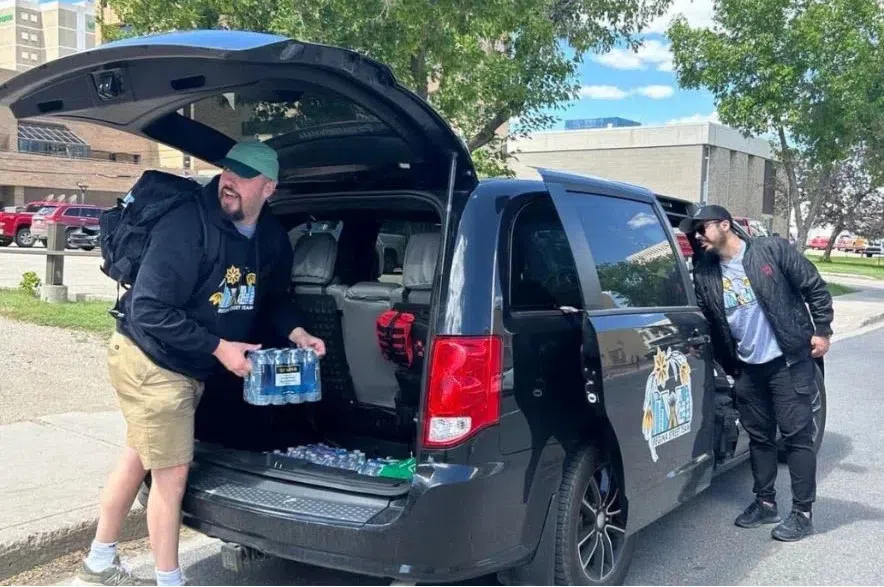The Regina Street Team is quietly taking on some of the toughest social challenges in the city — from homelessness and addictions to mental health crises — with a model built on compassion and lived experience.
Robert Kraushaar, the street team’s clinical program manager, said the grassroots team provides first-response outreach to people living in encampments and on the streets. Members offer food, first aid, counselling and transportation, often serving those who have struggled to access traditional support services.
Read more:
- Provincial money to help Regina Street Team steady and expand
- ‘Gotta go, I guess’: Regina’s homeless pack up as encampment cleared
- Community grieves at ninth annual Regina Homeless Memorial
“We work with people that other organizations have struggled with or lost track of,” Kraushaar said. “When we connect someone to a service, we don’t just drop them off; we go with them to make sure they get what they need.”
The team operates out of Nest Health, but most of its work happens on the streets of the Queen City. Equipped with a pair of outreach vehicles, staff and volunteers travel to various encampments and check on those staying there.
Although the Street Team isn’t funded for housing, Kraushaar said they’ve helped numerous people find shelter. The team also runs a weekday food program in North Central and provides on-site crisis and addiction counselling, including cognitive behavioural therapy.
Beyond practical support, Kraushaar said the team’s approach is grounded in empathy, something that comes naturally to the team members who have faced similar struggles themselves.
“Most of us have lived experientially,” he said. “We’ve been on the street, dealt with addiction or mental health issues ourselves. It never really goes away, so we understand what people are going through.”
He described the work as both a moral and civic duty, saying outreach fills gaps left by overburdened systems.
“The systems failed a long time ago and just continue to be broken,” he said. “We’re not a solution; we’re a support. Somebody’s got to be out there helping.”
Encampments, once hidden, are now much more visible across the city. Kraushaar said homelessness has spread far beyond the core neighbourhoods of the North Central and Heritage, with individuals setting up camp in parks, wooded areas and even on the edges of the city.
“There’s encampment in every corner of Regina,” he said. “Some are big, but others are just one person tucked away in the bushes. You’d never know they’re there.”
As colder weather approaches, the street team recently appealed to the public for donations of blankets and winter gear. Kraushaar said they try to limit requests for help from the general population, but the growing need has made it challenging to keep up.
“We don’t have a budget for that kind of stuff,” he said. “But people are cold.”
The Regina Street Team has operated for two years in its current form after merging two earlier outreach programs. Despite limited funding, Kraushaar said the team will continue working to ensure no one is left behind, one conversation and connection at a time.
Read more:











